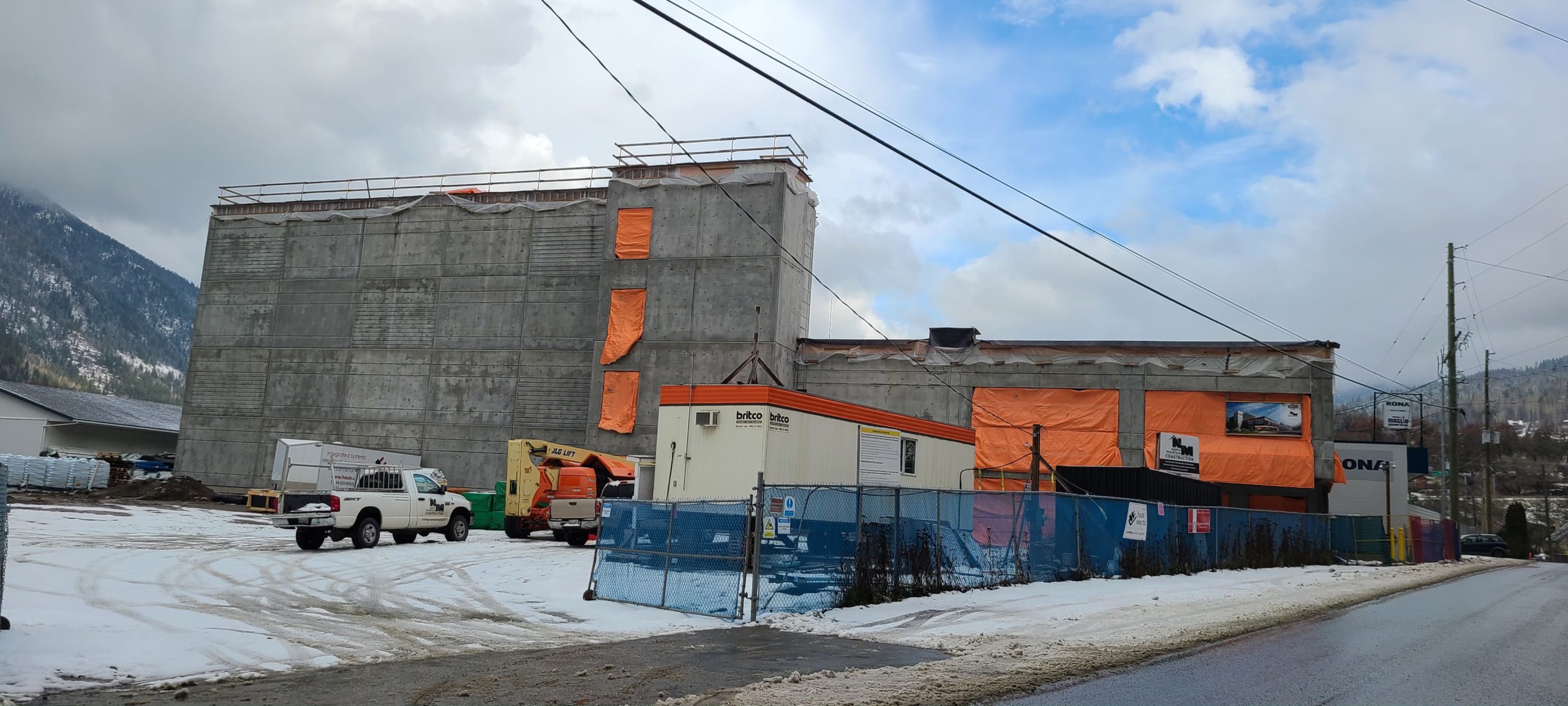A Nelson company that has been constructing a cannabis processing facility on Government Road in Railtown says it will not use the building for its intended purpose and will instead lease the space to others.
“We’re making a pivot to our business,” says Mitchell Scott, one of the co-founders of the Nelson Cannabis Collective.
“We knew we were getting into something risky, so we developed the property with a Plan B in mind to secure our investors’ investment.”
Scott says they have faced challenges in raising capital as well as “some incredible, wild west building costs” and “extended procurement timelines” in acquiring specialized equipment.
Scott says they were “excited to participate in this new industry and this incredible cannabis community in the Kootenays,” so it was a difficult decision to alter their plan as the four-storey building nears completion.
The superstructure is complete along with the majority of groundwork, the roof is on, and power has been hooked up, Scott said. Windows will be added in the next couple of weeks. By early spring, they hope to have tenants working on their own leasehold improvements.
Scott said the building, which was originally intended to process cannabis and offer retail sales, is the first commercial building of its size within city limits within many years.
He said even without publicizing their plans, they have discovered demand for light manufacturing and commercial office space in Nelson in a building with significant square footage that has already been zoned appropriately.
“We’re very confident this building is going to turn into a vibrant mixed use commercial property in the heart of Railtown,” he says.
As for their own future, Scott said they still believe in their idea, but the timing wasn’t right.
“We do know there is a need for a centralized processing facility and sales and marketing group that can work with micro producers in the region. We’re not willing to let that idea go but it won’t manifest in this building, unfortunately.”
Scott chalked it up to a variety of factors, including general skittishness among investors due to the pandemic, and the falling per-gram price of cannabis. He said their business would likely have to spend two to three years getting a license and establishing sales channels while proving they can grow craft cannabis.
“It’s a brand new, heavily regulated industry with a lot of different businesses trying to get in and establish their vision and business model,” he says. “It’s very competitive. That’s made it difficult.”





